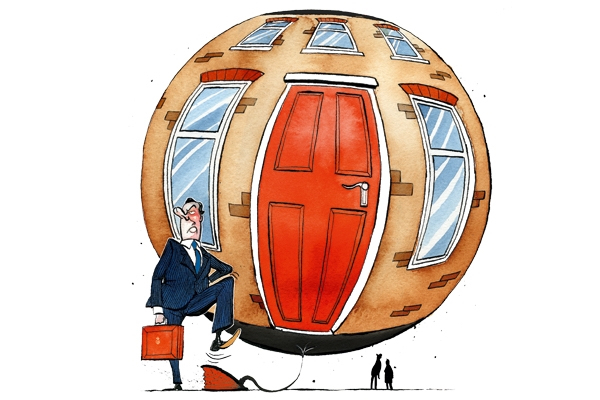During a lull in the pandemic I rented a little flat in Oxford for the academic year I was thrilled to have been offered; then Covid came back, my college all but closed and I made so little use of my lodgings that it would have been cheaper per night to stay in a suite at Le Manoir aux Quat’Saisons. As bills mounted, I learned that modern renting is astonishingly expensive – while for the landlord, I thought, it looked like easy money. So in the next phase of life, I became a buy-to-letter myself – and as I do the maths at the end of the tax year, I’m discovering the meaning of what the Daily Telegraph recently called ‘Britain’s demented war on landlords’.
George Osborne, as chancellor, imposed a stamp duty surcharge and reduced tax relief for mortgage interest to discourage investors in flats and make more room for first-time buyers. Now, combined with stronger tenant rights, falling property values and rising mortgage rates, being a landlord is becoming more trouble than reward and hundreds of thousands are getting out – driving sale prices down and rents upwards for the fewer flats available. That in turn exacerbates labour shortages and suppresses productivity by reducing workforce flexibility, as well as hastening urban decline by leaving habitable space empty. A crippled rental market is an insidious plague on an already weak economy – and I hope I don’t sound bitter if I say I’ll be astonished if ministers do anything to rectify it.
Lynch justice
‘Be glad you’re not Dr Mike Lynch,’ I wrote in July 2021, when a UK court first ruled that the founder of the software venture Autonomy could be extradited to the US to face charges in relation to its $11 billion takeover in 2011 by Hewlett-Packard, which claimed to have been misled into overpaying by $5 billion.








Comments
Join the debate for just £1 a month
Be part of the conversation with other Spectator readers by getting your first three months for £3.
UNLOCK ACCESS Just £1 a monthAlready a subscriber? Log in